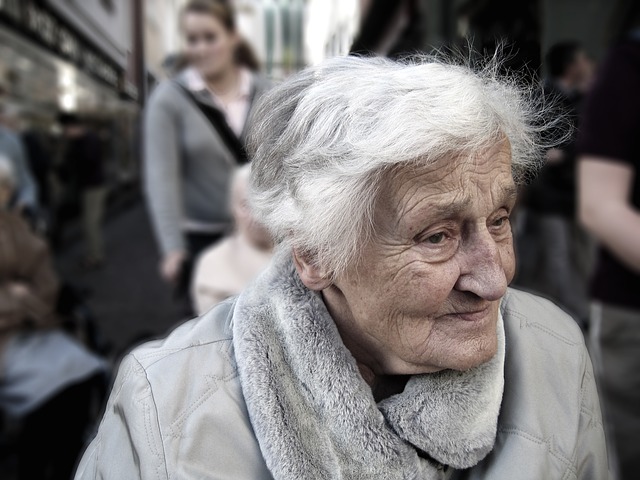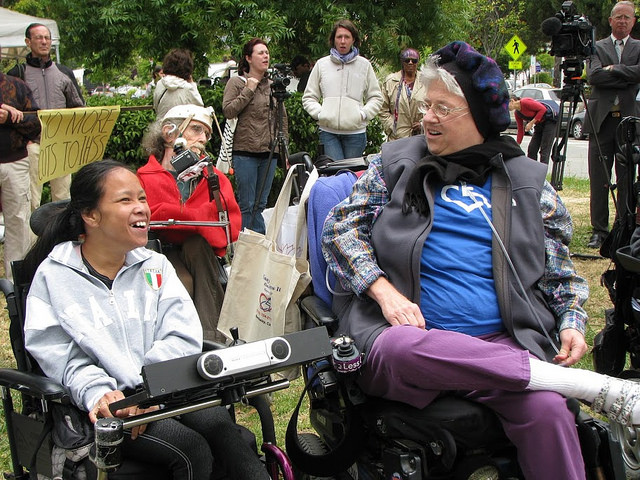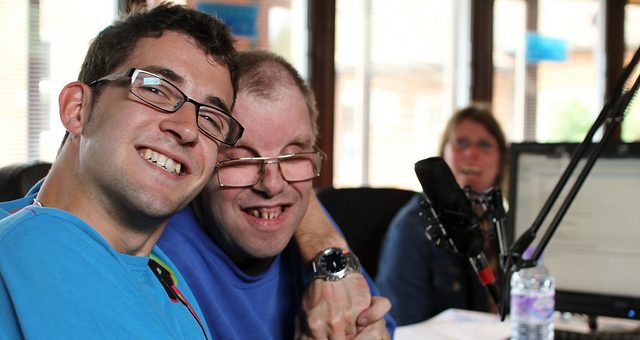Campaigners fear a new law could result in the erosion of rights for people with learning disabilities, autism and dementia to make decisions for themselves, including how and where they are cared for.
The Mental Capacity (Amendment) Bill, which is currently being debated in the House of Lords, could undermine key freedoms that instead urgently need to be strengthened, disability groups have said.
They fear the bill could result in people being forced to live in care homes when it is not in their best interests nor what they want, simply because it is cheaper and easier for local authorities.
The bill is intended to prevent vulnerable people from being taken advantage of for financial gain, for example, through being duped into marriage, however, there are concerns the bill will curtail the rights of people deemed to be lacking mental capacity.
A change in the law could affect the human rights of over 300,000 people in England and Wales with conditions including dementia, learning difficulties, autism and brain injuries, as well as impacting their families and friends.
Amending the Mental Capacity Act 2005 Should Not Threaten Rights and Freedoms
 Credit: Pixabay Gerald
Credit: Pixabay Gerald
The bill is designed to amend the Mental Capacity Act 2005, which rights advocates say is seriously flawed and urgently needs changing – but not in a way that could actually weaken existing safeguards.
Disability group Inclusion London said it recognised the existing system needed to change but had concerns around the content of the bill, and the fact that there hasn’t been a proper consultation process.
“We are very much concerned that the bill weakens the existing safeguards that people have and does nothing to ensure support and care is provided in a way that promotes and maximises disabled people’s liberty,” the group said in a statement.
The bill will make it easier to deprive disabled people of their liberty
Inclusion London
“In fact the bill will make it easier to deprive disabled people of their liberty. We are also concerned that there has been very little consultation with disabled people who will be affected by the bill.”
Other disability rights groups have expressed similar fears about the bill, saying it could deprive disabled people of information and limit their access to justice.
According to Disability Rights UK the bill gives too much power to care home managers who may be motivated by profit. They highlight the bill uses offensive and out-of-date language to describe disabled people and moves UK law further away from the UN Convention on the Rights of People with Disabilities by ignoring their wishes and feelings.
Age UK has also expressed serious concerns about the new law, which will affect thousands of elderly people.
Angela Kitching, Head of External Affairs, said in a blog post that the bill needed to be strengthened considerably.
The Bill needs to be strengthened considerably to make sure people are not having their liberty deprived inappropriately and that those in detention have strong safeguards to appeal against their situation.
Angela Kitching, Age UK
She said: “While reform in this area is welcome, the Bill needs to be strengthened considerably to make sure people are not having their liberty deprived inappropriately and that those in detention have strong safeguards to appeal against their situation.”
Failing to Protect the Rights of Disabled People

The bill is perhaps particularly concerning because the British government has come under fire recently for repeatedly failing disabled citizens in a number of different ways.
A recent report by the Equalities and Human Rights Commission found that the UK’s 15 million disabled people are excluded from mainstream society, and face a significant disability pay gap and a greater likelihood of living in poverty, as well poorer health outcomes. The EHRC has also noted a significant jump in disability hate crime.
Sue Bott from Disability Rights UK said: “The EHRC’s comprehensive report demonstrates what we are hearing daily; that in almost every aspect of life, the chances for disabled people are getting worse. It is now urgent that the Government looks at the cumulative impact of their policies and acts to restore the opportunities for disabled people to be equal.”
Before this, in 2017, Theresa May’s government was condemned by a UN Committee over declining living standards of disabled people following austerity cuts to care budgets.
The report found the government had “failed to recognise living independently and being included in the community as a human right”.
Disability in Human Rights Law
 Credit: Steve PB Pixabay
Credit: Steve PB Pixabay
Scarrott provide that authentic voice not only to the learning disabled community in Oxfordshire but as DJ’s on our fortnightly radio show they broadcast to not only the UK but the world.
The Human Rights Act 1998, which incorporates the Human Rights Convention into UK law, came into force in 2000 and enshrines the status of people with learning disabilities as equal citizens.
Meanwhile the Equality Act 2010 states that disabled people should be treated equally, and protection from discrimination applies in many situations such as education, employment, exercise of public functions, goods, services, facilities and transport.
The Equality Act incorporated a range of disability rights into UK law. This includes article 14 of the Human Rights Convention, which prohibits discrimination on the grounds of disability and other key characteristics.
The Equality Act also incorporates key aspects of the Convention on the Rights of Persons with Disabilities into UK law. This important treaty was drawn up in 2006, and article 1 states that the purpose of the treaty is to: “promote, protect and ensure the full and equal enjoyment of all human rights and fundamental freedoms by all persons with disabilities, and to promote respect for their inherent dignity.”
Campaigners believe that the Mental Capacity (Amendment) Bill could undermine Article 8 of the Human Rights Convention, the right to family and private life.







